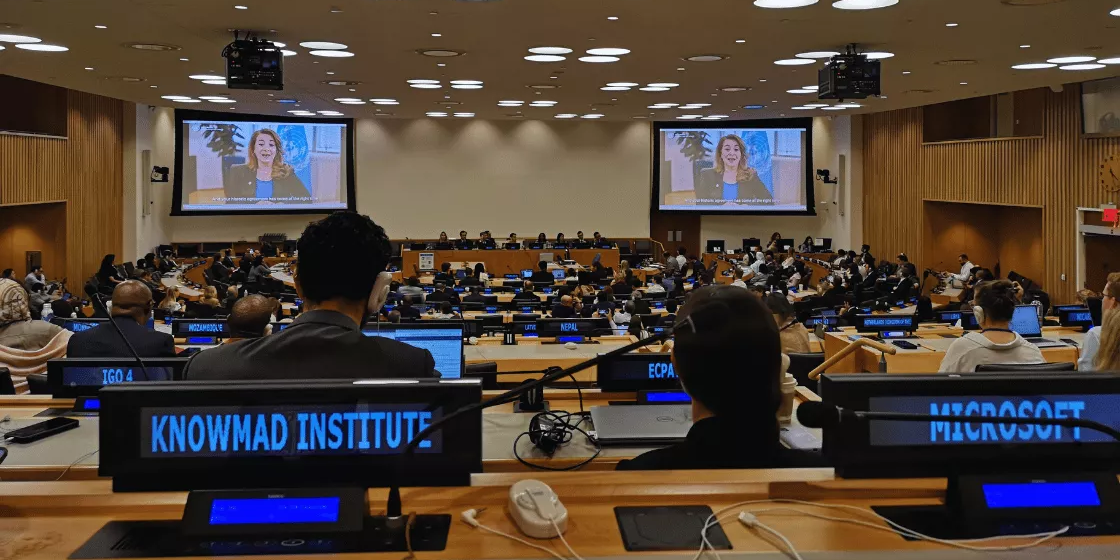
A comprehensive analysis of the UN Convention on Cybercrime, examining its potential risks to human rights, freedom of expression, and digital privacy, while highlighting the need for robust safeguards in international cybersecurity frameworks.
Although international treaties may seem distant and unrelated to our daily lives, they directly impact fundamental aspects of our existence. The United Nations Convention on Cybercrime, recently drafted by the ad hoc committee, is a clear example. This treaty, resulting from complex negotiations, establishes a global framework to combat cybercrime. Its regulations directly affect the security of our online transactions, the protection of our digital privacy, freedom of expression, and the integrity of critical infrastructures.
August 8, 2024, will be remembered as a historic day in the global fight against cybercrime, marking a decisive step toward creating a safer and more equitable digital environment. This achievement is a testament to the international community's ability to unite in the face of complex challenges, recognizing that only through global cooperation can we effectively address emerging threats in cyberspace.
The negotiations for this Convention have been intricate and controversial, with some states proposing criminalizing a wide range of technology-enabled offenses. According to Human Rights Watch, these proposals could threaten freedom of expression and other fundamental human rights, being used to suppress activists and journalists under the guise of combating cybercrime.
Several civil society organizations, industry stakeholders, and academia have highlighted the need to include robust safeguards to protect human rights and focus on the most severe cybercrimes, such as child sexual exploitation.
The risks to human rights are significant. The broad provisions of the Convention could facilitate mass surveillance and cross-border information sharing without sufficient safeguards, endangering privacy and freedom of expression. This is particularly concerning in contexts where cybercrime laws are already used to silence dissent and repress vulnerable minorities.
For example, some states have proposed criminalizing the "dissemination of false information" or the "incitement of subversive activities," which could be broadly interpreted and used to suppress press freedom and peaceful protest. These concerns are backed by a joint statement from the Knowmad Institut and other organizations, emphasizing the need to include international frameworks such as the International Covenant on Civil and Political Rights (ICCPR) in the Convention.
During the deliberations of the Ad Hoc Committee on Cybercrime, key proposals were discussed, and areas of consensus and pending challenges were identified. Any international convention in this area must include robust safeguards to protect human rights. The implementation of the Convention must be consistent with human rights obligations under international law, as suggested by the UNODC's preliminary text.
To ensure these concerns are heard, the Knowmad Institut and other civil society organizations and industry supported an open letter led by the Cybersecurity Tech Accord. The letter, signed by a diverse coalition including AccessNow, Human Rights Watch, Electronic Frontier Foundation (EFF), and other vital actors, was sent to member state delegations hours before the final text of the Convention was approved.
In this letter, governments were urged not to adopt or ratify the Convention unless substantial changes were made to address fundamental concerns, such as the lack of robust safeguards for human rights and press freedom, as well as the risks of power abuse under the current provisions of the treaty.
The EU Cybersecurity Act and the European Commission's proposal on cybersecurity are examples of balancing the prevention of cybercrime and the protection of human rights. These regulations include detailed measures to enhance cybersecurity while safeguarding privacy and other fundamental rights.
Once an international convention is approved and ratified, it is difficult to amend its unintended consequences. The processes are time-consuming and require significant effort. Currently, various efforts are underway to address the adverse repercussions of the 1961 Single Convention on Narcotic Drugs, which has had multidimensional impacts on the daily lives of hundreds of millions of people in social, economic, political, and health aspects.
- Social Impact: This Convention has influenced the perception and stigmatization of people who use drugs, promoting criminalization policies that have led to the marginalization of particular communities.
- Economic Impact: It has fueled an illicit drug market that generates significant income for criminal organizations, negatively affecting the formal economy, overall development, and the environment.
- Political Impact: It has forced governments to invest significant resources in the war on drugs, often at the expense of addressing severe crimes and other priority areas such as education and health.
- Health Impact: It has restricted access to controlled substances for medical and scientific uses, limiting patient therapeutic options and hindering scientific research.
A crucial aspect that must be urgently addressed is the exclusion of serious crimes such as extremism and terrorism from the scope of the Convention. This omission presents several significant risks:
- State and Parastatal Espionage: The lack of specific coverage for extremism and terrorism limits countries' ability to address espionage carried out by state and parastatal entities.
- Child Rights and Vulnerable Groups: The current provisions must also address concerns about protecting children and migrant and displaced populations.
- Freedom of Expression and Privacy: There is a considerable risk that the treaty's broad provisions could justify mass surveillance and the suppression of freedom of expression under the guise of combating cybercrime.
International cooperation is vital. States must work together and coordinate with industry, NGOs, and civil society to develop a framework that not only effectively combats cybercrime but also protects and respects the fundamental rights of all people. Only in this way can we build a safe and fair digital environment for everyone.
We invite our community to continue supporting our initiatives and to actively participate in defending a free and secure internet, where human rights are always prioritized. The Knowmad Institut remains committed to promoting ethical approaches to cybersecurity that respect human dignity and fundamental freedoms.